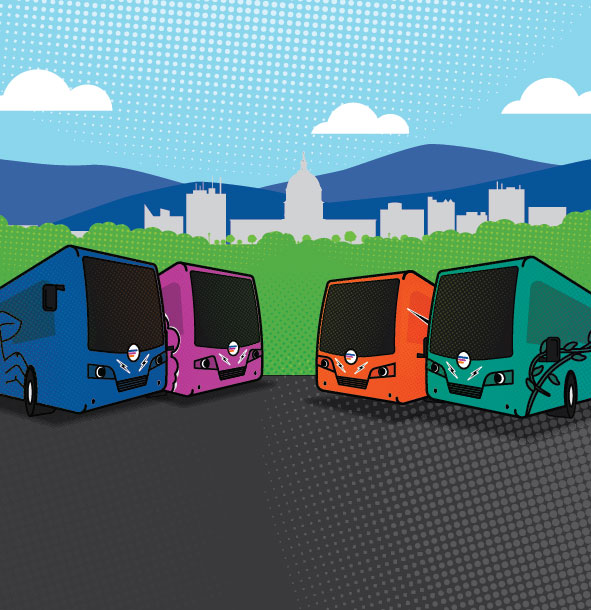March 24 12:00 AM
Inbound Route 29 going back to old detour. From Lincoln, right on University, left on Broadway to MSS. Temp Stop has been moved to Lincoln & University
Valley Regional Transit has introduced the first electric buses to the Treasure Valley, in an effort to help reduce the region’s carbon footprint. Several of these quiet, comfortable, low-emission buses were put in service in early October!

There’s a new team in town charged with making a change. A quieter, more comfortable commute, and a more sustainable Treasure Valley.
Electric buses (or E-buses) are a big step toward making the Treasure Valley a cleaner, more sustainable place to live, work, and play. With nearly zero emissions, the battery-powered buses are fueled by Idaho Power, which generates approximately 60% renewable electricity.
You may notice small changes when boarding an electric bus. First, you won’t hear it coming. E-buses are whisper quiet, so keep your eyes peeled when the bus is scheduled to arrive. Once you sit down, it’s even easier to get comfortable. The smoother ride of electric means you can enjoy the commute while you read, work, listen to music, or just relax. And when you arrive at your destination, you’ll breathe easy knowing that your clean commute released nearly zero emissions into our air.
Taking your first ride is easy, whether the bus is electric or not. These buses might be new, but they don’t cost any more to ride.
Learn How to Ride
Electric buses have about 90% fewer moving parts than gasoline-powered buses, which means the maintenance is minimal. Discover how they compare to more traditional buses.


Grab your own digital copy of the comic book The Electric Fleet vs. The Forces of Smog!
Download Now